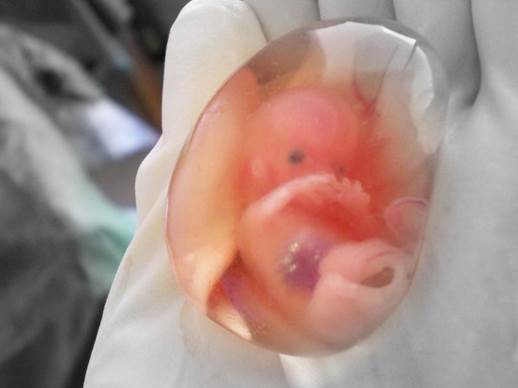Pregnant women should know how to
avoid the bad situation.
Miscarriage is the spontaneous end of
pregnancy that often occurs in the 20th week of pregnancy. About 1
out of 5 pregnant women has miscarriage. Miscarriages often occur in the first
3 months and the 4 next months.

Pregnant
women should know ways to prevent miscarriage.
Reasons causing miscarriages
·
The appearance of strange chromosome in the
development of babies.
·
Genetic matter
·
The age of pregnant women; the risks of
miscarriages will increase in pregnant women who are over 35 years old.
·
The abnormal structure of the uterine cervix:
double uterus, uterine fibroids and uterine tumor.
·
The spontaneous changing in hormones of pregnant
women and some diseases like diabetes, ovarian cyst partition, and progesterone
decrease.
·
Immune system disorder.
·
Pelvic injuries; because of falling or
occupational accidents…
·
Alcohol, tobacco… and other drugs relate to RPL,
such as: chemotherapy, radiation, anesthetic gases, metal, are proved to have
the ability to cause miscarriage. In addition, dermatology drugs are also the
reasons.
On another hand,
there are some cases that are hardly found the reasons (about 50-60%)
Types of miscarriage
Miscarriages are divided into some
following types:
Miscarriage
threat
It is having genital bleeding and
stomachache while the baby is still alive and isn’t pushed out of the womb. The
uterine cervix still closes or slightly opens but the parts of fetus are still
not pushed out. If the woman continues bleeding and having stomachache, the
parts of fetus go through the cervical tube, she is considered to have
miscarriages.

Miscarriage
is the spontaneous end of the pregnancy that often occurs in the 20th
week of pregnancy.
Sure-fire
miscarriages
The complete miscarriages are both of fetus
and placenta are pushed out together; the stomachache ends but the blood keep
leaking as it does in period. The incomplete miscarriages are a part of the fetus
and placenta is still in the womb; the pain is reduced but the blood still keeps
flowing; it even causes hemorrhage in some cases.
Stillbirth is the case that the fetus dies
but still remains in the womb; it isn’t pushed out. The time that the dead
fetus remains in the womb can last for weeks or months. At that time, the
pregnant sicknesses are gone, there’s black blood in the vagina and no
stomachache.
The examination shows that the uterine
cervix is firm and a little bit bigger; the body of the uterus gets smaller comparing
to the fetus’s age and has the different levels of soft in different areas.
There’s no heartbeat ultrasound. The dead fetus will remain in the womb for a
while, then it goes out by itself.

Stillbirth
is the case that the fetus dies but still remains in the womb.
Signs of miscarriages
The signs are bleeding and pain: cramps,
vomiting, and having pain as it’s in period. Although bleeding is not always
the sign of miscarriage, you should see an obstetrician to have tests. Mild,
discontinuous bleeding which appears in the uterine cervixes or the future
placenta can be a normal case.
However, having serious bleeding and big
blood clots are the certain signs of miscarriages. Sometimes, the missing of
the pregnant signs (reducing chest pain and nausea) can tell about unusual
things that are happening.
Treatment measures
When you find out the suspecting signs of
miscarriage, you’d better ask your family members to take you to the maternity
hospital or medical centers of obstetrics to receive professional treatments.
The followings are some treatments that you can receive:

Abortion
is a treatment measure of the miscarriage.
·
If the miscarriage is unintended and over, and
the doctor needn’t intervene much, you should eat and drink and convalesce to
prepare for the next pregnancy.
·
If the miscarriage is incomplete, you need
providing prostate hormones by taking pills. Prostate hormones are the ones
that create the spasms to push the placenta out. If necessary, the doctors will
use suction. The technic is use a vacuum machine to dismember to embryo from the
uterus. Besides, the doctor can use abortion which is using a spoon-shape
device to clear the tissues that cling to the uterus. These technics are
operated after the patients have the local anesthesia. The processes require a
short period of time remaining in the hospital.
·
To the late miscarriage (after 14 weeks), it’s
easy to have the risks of hemorrhage, so you have to be hospitalized. The
technical placentas will be performed after giving epidural and general
anesthesia to the patients. The longer the pregnancy last the more painful the
surgery is.